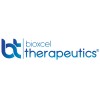Dexmedetomidine in the Treatment of Agitation Associated With Dementia (TRANQUILITY III)
Agitation, Dementia

About this trial
This is an interventional treatment trial for Agitation
Eligibility Criteria
Inclusion Criteria: All subjects must have a diagnosis of probable Alzheimer's disease based on NIA-AA criteria (2018). If subject biomarker data are unavailable, per the 2018 NIA-AA diagnostic criteria, the clinical diagnosis of probable AD will be based on the 2011 NIA-AA criteria Episodes of psychomotor agitation (e.g., kick, bite, flailing) Subjects exhibit behaviors that are congruent with the International Psychogeriatric Association criterion for agitation representing a change from the subject's usual behavior A score of 0 to 20 on the Mini-Mental State Exam (MMSE) and require moderate to full assistance with activities of daily living Subjects who read, understand, and provide written informed consent, or who have a LAR to provide consent on their behalf Subjects who are deemed to be medically appropriate for study participation by the principal investigator Participants who agree to use a medically acceptable and effective birth control method Exclusion Criteria: Subjects with dementia or other memory impairment not due to probable AD. Clinical diagnosis of probable AD should not be applied when there is evidence of a cerebrovascular incident temporally related to the worsening of cognitive function. Subjects with agitation caused by acute intoxication. Subjects with significant risk of suicide or homicide per the investigator's assessment. Subjects who are medically unstable or in recovery. Note: Subjects with a remote (>5 years) history of stroke may be included, regardless of size/location. History of clinically significant syncope or syncopal attacks, orthostatic hypotension within the past 2 years, current evidence of hypovolemia, orthostatic hypotension, bradycardia. Subjects with laboratory or ECG abnormalities. Subjects who have received an investigational drug within 30 days prior to Screening. Subjects who are currently suffering from substance abuse. Subjects with a potential cause for delirium (relatively recent onset agitation and dementia)
Sites / Locations
- BioXcel Clinical Research Site
- BioXcel Clinical Research Site
- BioXcel Clinical Research Site
- BioXcel Clinical Research Site
- BioXcel Clinical Research Site
- BioXcel Clinical Research Site
- BioXcel Clinical Research Site
Arms of the Study
Arm 1
Arm 2
Arm 3
Experimental
Experimental
Placebo Comparator
Cohort 1- 40 Micrograms
Cohort 2- 60 Micrograms
Placebo
Sublingual film containing 40 Micrograms Dexmedetomidine
Sublingual film containing 60 Micrograms Dexmedetomidine
Sublingual Placebo film
Outcomes
Primary Outcome Measures
Secondary Outcome Measures
Full Information
1. Study Identification
2. Study Status
3. Sponsor/Collaborators
4. Oversight
5. Study Description
6. Conditions and Keywords
7. Study Design
8. Arms, Groups, and Interventions
10. Eligibility
12. IPD Sharing Statement
Learn more about this trial
